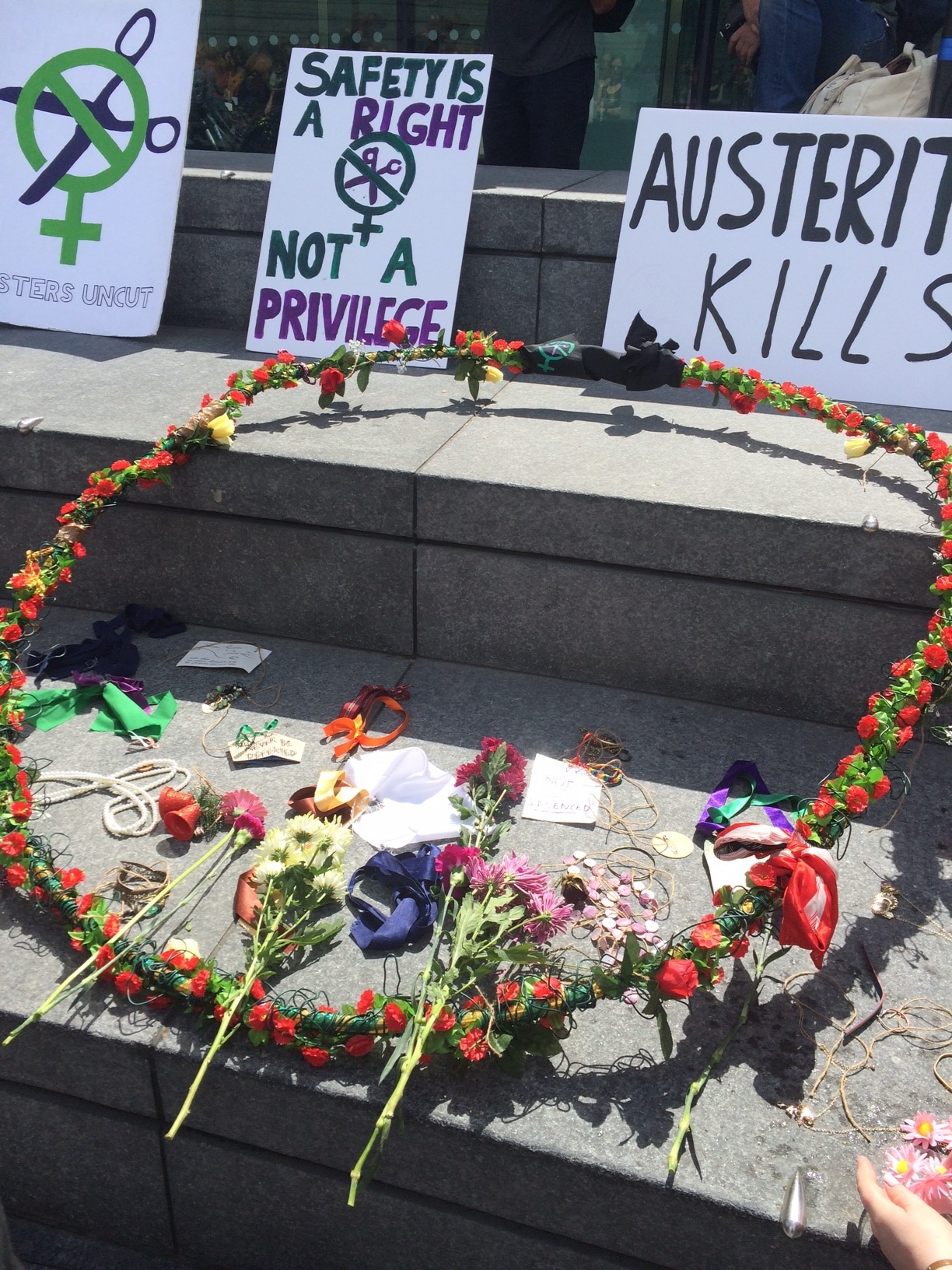Fighting for change to empower communities
Kay Snow argues that the road to empowerment of communities is in coming together in solidarity and resistance against oppression and injustice.
By Kay Snow, Sisters Uncut activist
As a feminist, the term empowerment drives me to distraction. It is thrown around everywhere; from describing Beyoncé’s latest album to government policy documents. Nowhere is it really defined and even less so understood.
If you pay close attention to the language recent governments use, ’empowerment’ often goes hand in hand with service cuts, reduced social housing or the dismantling of the welfare state. This usage has turned a positive word into a justification for the rampant vulnerability and inequality inflicted on our society and a call to ‘pull your socks up’.
Empowerment in its true sense is not just thinking yourself out of hardship: it’s having the social, political and economic power and influence to realise potential.
The disadvantages and oppressions that befall me because of my identity as a woman, as a lesbian and as a person from a working-class background would not disappear if I simply changed my attitude. If I was also black, disabled or transgender these oppressions would be fiercer and more wide-reaching. A simple change of attitude would do nothing to change my life in any material way. There are structural social issues at play and the solution begins with looking at what an empowered community looks like.
Empowered communities need to challenge what’s currently happening
Let’s look at this practically. Two women a week are killed by a partner or ex-partner in this country. Austerity has left 66% of the surviving womens’ refuge provision on the brink of collapse due to funding uncertainty. There is one specialist refuge for domestic violence survivors with a learning disability in the whole country and yet disabled people are twice as likely to be victims of abuse. With a social and political environment as volatile and oppressive as this, where access to a safe place to sleep is nearing impossible, what is the real value in the language of empowerment if it doesn’t level a challenge to the current reality?
For me, empowerment’s importance is as an act of resistance with true social justice as its goal. Building solidarity and working together can produce empowerment and force political and social change through collective action. Throughout history, it’s only when marginalised and oppressed communities have come together and fought, that we have made gains in our social, economic and political rights.
Empowerment comes from a community taking matters into their own hands, usually without ‘permission’ or policy.
What counts as a community?
In my opinion, community is more a verb than a noun – a community is continuously evolving, nurturing and transforming. It should serve a purpose for all those who are part of it and who might want to be. A community is always looking for ways to learn together, provide for each other, model alternatives, develop capacities and build leadership. A community must ensure its most vulnerable and marginalised are more than just a token and take up space as leaders, organisers and elders; which they are prevented from doing elsewhere.
In essence, an empowered community is one that models a different way of living and fights to bring that into reality.
Sisters Uncut: a community fighting violence against women
I feel very lucky to be part of one such community, Sisters Uncut, a feminist direct-action group fighting austerity and violence against women and non-binary people. We are a group of people who came together to fight for domestic violence services and became a community. We have a broad spectrum of different identities and experiences; we are survivors of violence, women of colour, queer and gender non-conforming, trans, disabled, sex-workers, working class, migrants, addicts, ex-prisoners and domestic violence sector workers.
We want to create a space where we can define our own political goals, build up our own leaders and find ways to heal from gendered violence. Our community is by no means perfect; society has raised us to have harmful ideas and attitudes and they are not easy to unlearn. But we work hard to make sure that women and non-binary people from all backgrounds are welcome in our spaces, meetings and political actions. We believe each one of us is important in the pursuit to realise our potential, to live truly empowered lives, free of violence.
If there is a place for an empowered community in the 2020s, it is in people who come together against sexist, racist and disablist policies that put lives at risk, break up families and criminalise our survival. As an act of resistance, building solidarity between marginalised groups and finding ways to fight for change together is a beautiful and necessary act on the road to genuine empowerment, social justice and a better world.
Click to explore the Empowered Communities area of our website.

